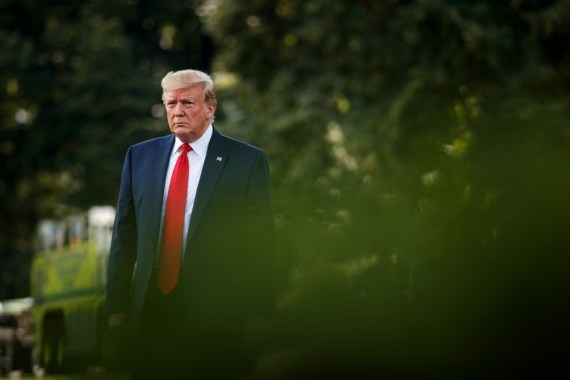Former U.S. President Donald Trump entered a plea of not guilty on Tuesday to federal charges of unlawfully retaining national security documents and lying to officials during their retrieval. Here’s what to expect in the ongoing case.
The trial is anticipated to occur in approximately a year or more. Trump’s plea, made before U.S. Magistrate Judge Jonathan Goodman in a federal court in Miami, sets the stage for a lengthy legal battle as he seeks to regain the presidency in the 2024 election.
Advertisement
Following the plea, Trump was allowed to leave court without any conditions or travel restrictions, and he wasn’t required to post a cash bond. However, the judge ruled that he could not communicate with potential witnesses. Trump’s aide, Walt Nauta, who is also charged in the case, appeared alongside him but will not enter a plea until June 27 due to the absence of a local lawyer. Nauta was also released without having to post bond and was ordered not to communicate with other witnesses.
Federal prosecutors are expected to begin handing over evidence to Trump’s legal team, which may include extensive correspondence involving Trump’s lawyers, the U.S. National Archives and Records Administration, and prosecutors during the negotiation of document release.
Trump’s lawyers will likely file a motion to dismiss the case on various grounds, potentially including his claim that he declassified the documents before taking possession of them. They may also argue for dismissal based on alleged prosecutorial misconduct, such as violations of attorney-client privilege.
However, motions to dismiss in criminal cases rarely succeed, as defendants face a high burden of convincing a judge that the case is fundamentally flawed and should not proceed to trial. At this stage, prosecutors are given the benefit of the doubt regarding their factual allegations.
Regarding Trump’s campaign for the presidency, the charges against him, including violations of the Espionage Act, conspiracy to obstruct justice, and making false statements to investigators, do not automatically prevent him from running or assuming office if convicted. Trump’s legal troubles have not significantly impacted his standing among Republican voters, as a recent poll indicated that he still maintains a wide lead in the race for the 2024 Republican nomination, with 81% of Republican voters viewing the charges as politically motivated.
Most of Trump’s Republican rivals have expressed support for him and criticized the FBI for alleged political bias, deviating from the party’s traditional stance of backing law enforcement. Trump has used his legal cases and investigations as fundraising tools, portraying himself as a target under attack and soliciting support from his followers.
The timeline for a potential trial remains uncertain. While Special Counsel Jack Smith, leading the prosecution, has mentioned a “speedy” trial, the complex nature of the case means that a trial could be several months away. The parties involved are likely to agree to extend deadlines as they examine evidence and argue legal disputes before a judge.
Whether Trump testifies in the trial is solely his decision. Defendants in criminal cases are not obligated to testify, and the risk of cross-examination by prosecutors often dissuades them from doing so. In a recent civil trial concerning allegations of sexual abuse and defamation brought by writer E. Jean Carroll, Trump chose not to testify, and a jury found him liable in that case in May.
If Trump were to win the 2024 presidential election, it is unlikely that the prosecution would proceed. The U.S. Department of Justice, which falls under the executive branch headed by the president, typically adheres to a policy that a sitting president cannot be prosecuted.
However, in “extraordinary circumstances,” with the approval of the U.S. attorney general, the department can deviate from this policy. In this scenario, a lame-duck attorney general, such as Merrick Garland serving under President Joe Biden, could choose to proceed, but Trump, as president, could terminate











